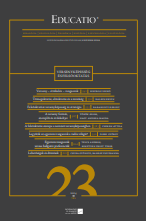A központosítás haszna és ára
Centralisation in Educational Policy: Pros and Cons
Author(s): Tamás KozmaSubject(s): Education, Governance, State/Government and Education
Published by: Akadémiai Kiadó
Keywords: Educational policy; centralisation; school reform; Eastern Europe;
Summary/Abstract: The Hungarian Parliament centralised school governance in 2011. Schools were owned and governed by the local authorities between 1990 (the time of political transition) and 2011; after 2011, however, most of them came under the governance of the Ministry of Human Resources. This is the major change in Hungarian educational policy for the government period 2010–2014. Though many experts, teachers and trade union leaders opposed the changes, the process of centralisation reflects the European character of Hungarian school governance – and such centralisation had already been prepared by former governments. The strengths of the centralisation are a less expensive running of the (public) school system, better allocation of resources and that(central) government is in a better position to lay down future strategies for the system. Yet there are also weaknesses of such centralisation, namely the danger of a new bureaucracy and aloss of civic participation. Education policy makers thus have to calculate the gains and the losses caused by rapid and perhaps unprepared centralization.
Journal: Educatio
- Issue Year: 23/2014
- Issue No: 1
- Page Range: 3-12
- Page Count: 10
- Language: Hungarian

